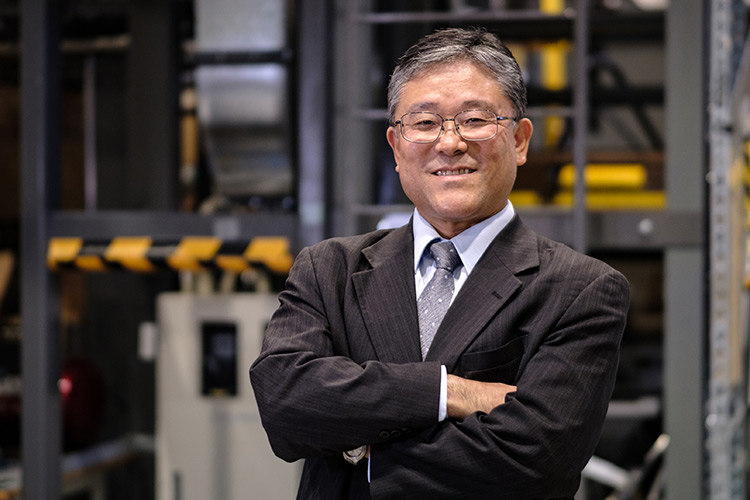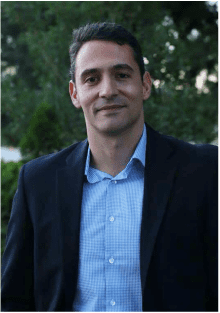Invited Speakers
Invited talks
Dr. Kleio Baxevani
University of Maryland, USA
Title: The Role of Autonomous Marine Vehicles in Environmental Data Collection and Oceanic Research
Abstract: In recent years, autonomous marine vehicles have attracted considerable interest due to their versatility and growing role across various oceanic disciplines. These vehicles are capable of executing a diverse range of tasks in complex and often harsh marine and coastal environments without requiring direct human involvement. Their ability to operate independently not only enhances efficiency but also significantly reduces operational costs and risks associated with traditional manned missions. From environmental monitoring and underwater mapping to offshore resource exploration and maritime security, autonomous marine systems are transforming oceanographic research and industrial activities, making them an invaluable asset for both scientific and commercial applications.
Monitoring and conducting in-situ measurements in marine environments have become increasingly critical as climate change continues to impact ocean ecosystems, affecting sea levels, marine biodiversity, and water quality. Reliable and timely data collection is essential for understanding these changes, supporting conservation efforts, and developing strategies to mitigate environmental consequences. Traditional monitoring methods, which rely primarily on stationary platforms for data collection, are often limited by high costs and restricted spatial coverage. Furthermore, due to their repetitive nature, these tasks can be mentally taxing and prone to human error, leading to decreased efficiency and increased fatigue. Thus, automating such monotonous processes through the deployment of one or multiple autonomous marine vehicles offers a practical solution, enabling precise and consistent data collection while reducing human workload and operational expenses.
Bio: Dr. Kleio Baxevani is a postdoctoral researcher at the Collective Dynamics and Control Lab of the University of Maryland(UMD), working with Dr. Derek Paley and the rest of the UMD team that competes in the DARPA Triage Challenge. She received her Ph.D. in multi-behavioral systems via bifurcation theory from the University of Delaware(UD) under the supervision of Dr. Herbert Tanner and completed her time at UD as a postdoctoral researcher working with Dr. Arthur Trembanis and his team on organizing the 2024 Autonomous Systems Bootcamp. Her research interests span from autonomous navigation of marine and ground vehicles to task allocation and multi-behavioral multi-agent systems with a specific focus on field applications.

Prof. Yu Jiang
Cornell AgriTech, USA
Title: Towards Agriculture Autonomy via AI-powered Robotics
Abstract: Nutrition security has emerged as a critical challenge in recent years. Despite being a major source of essential micronutrients that promote human health, specialty crops such as fruits and vegetables lag behind in technological advancement and precision management, especially under ever-increasing challenges of labor shortage. In this talk, we will first present our recent development of PhytoPatholoBot (PPB), a system that integrates learning-based perception modules for both autonomous navigation and plant stress phenotyping in field environments. We will then introduce a closed-loop framework that combines real-to-simulation data generation with simulation-to-real data analysis to address challenges of data scarcity and analytical performance. Finally, we will discuss common challenges facing agricultural robotics and field robotics more broadly and invite further dialogue and collaboration toward advancing agricultural autonomy, which is vital for ensuring both food and nutrition security for our societies.
Bio: Dr. Yu Jiang is an Assistant Professor in the Horticulture Section, the School of Integrative Plant Science at Cornell AgriTech, Cornell University. Prior to joining Cornell, he obtained his Ph.D. degree in Agricultural and Biological Engineering from the University of Georgia in 2019. At Cornell, he established the Cyber-Agricultural Intelligence and Robotics (CAIR) Laboratory. As an applied roboticist, he focuses on systems engineering approaches to addressing grand challenges in modern agrifood systems, with a major research interest in integrated, AI-powered sensing and robotics systems for a full-chain solution enabling affordable, nutritious, sustainable, and resilient (ANSR) specialty crop research and production. He also leads entrepreneur programs at Cornell and New York State for agriculture technology. He is currently the chair of the Information Technology, Sensors, and Control Systems (ITSC) community of the American Society of Agricultural and Biological Engineers (ASABE) and executive member of Cornell Institute for Digital Agriculture (CIDA).

Prof. Ayoung Kim
Seoul National University, South Korea
Title: Uncharted Autonomy: Achieving Sustainable Autonomy for Unstructured Environments
Abstract: In this talk, we present novel sensing, calibration, and SLAM techniques to enhance autonomous navigation in challenging settings. First, we introduce a robust method for maritime radar scans that significantly reduces odometry errors, addressing challenges like low resolution and sparse features in open waters. Next, we introduce a conic-based camera calibration technique using moments to maintain accuracy despite distortions, enabling reliable calibration at a sub-pixel level. Lastly, the talk presents a new dataset covering heterogeneous radar sensors for robust sensing in the wild. These innovations collectively pave the way for sustainable autonomy in unstructured environments.
Bio: Ayoung Kim works as an associate professor in the department of mechanical engineering at Seoul National University since 2021 Sep. Before joining SNU, she was at the civil and environmental engineering, Korea Advanced Institute of Science and Technology (KAIST) from 2014 to 2021. She has B.S. and M.S. degrees in mechanical engineering from SNU in 2005 and 2007, and an M.S. degree in electrical engineering and a Ph.D. degree in mechanical engineering from the University of Michigan (UM), Ann Arbor, in 2011 and 2012. She also worked as a post-doctoral researcher in naval architecture and marine engineering, at U of M in 2013 before she worked at Electronics and Telecommunications Research Institute (ETRI) as a senior researcher.

Prof. Satoshi Tadokoro
Tohoku University, Japan
Title: Rescue Robotics in the Wild
Abstract: Rescue robotics is a category of field robotics focuses on emergency response in disasters. As result of many people's effort in R&D and applications, robots and drones are used in many cases. This talk will introduce some trials related to the speaker to discuss the future of rescue robotics research.
Bio: Satoshi Tadokoro (M'89 - SM'06 - F'09) graduated from the University of Tokyo in 1984. He was an associate professor in Kobe University in 1993-2005, and has been a Professor of Tohoku University since 2005. He was a Vice/Deputy Dean of Graduate School of Information Sciences in 2012-14, and is the Director of Tough Cyberphysical AI Research Center since 2019 in Tohoku University. He has been the President of International Rescue System Institute since 2002, and was the President of IEEE Robotics and Automation Society in 2016-17. He received awards including IEEE RAS George Saridis Leadership Award in Robotics and Automation, and Commendation for S&T by the Minister of MEXT Prize for S&T. He served as the Program Manager of MEXT DDT Project on rescue robotics in 2002-07, and was the Project Manager of Japan Cabinet Office ImPACT Tough Robotics Challenge Project on disaster robotics in 2014-19 having 62 international PIs and 300 researchers that created Cyber Rescue Canine, Dragon Firefighter, etc. His research team in Tohoku University has developed various rescue robots, two of which called Quince and Active Scope Camera are widely recognized for their contribution to disaster response including missions in the Fukushima-Daiichi NPP nuclear reactor buildings. IEEE Fellow, RSJ Fellow, JSME Fellow, and SICE Fellow.

Prof. Kostas Alexis
Norwegian University of Science and Technology (NTNU), Norway
Title: Resilient Autonomy across Robot Configurations: From Flying to Underwater
Abstract: This talk presents the possibility to unify the autonomy stack of diverse robot configurations, with a focus on aerial and underwater systems. The focus is on methods that enable resilient operations in GNSS-denied, infrastructure-free and communications-deprived environments.
Bio: Prof. Dr. Kostas Alexis conducts research in the domain of resilient robotic autonomy. Through his studies he has examined the potential of autonomous systems to navigate extreme environments by presenting resourcefulness, robustness and redundancy. He has been the PI and Team Lead of Team CERBERUS that won the DARPA Subterranean Challenge and his funding portfolio includes grants from major European (e.g., Horizon Europe, Research Council of Norway) as well as US sources (e.g., DARPA, NSF, DOE, USDA, AFOSR).

Dr. Navinda Kottege
Cyber-Physical Systems Research Program (Robotics, Computer Vision and Distributed Sensing Systems) at CSIRO's Data61, Australia
Title: Deploying Robots for Subterranean Exploration and Beyond
Abstract: In this talk, I will talk about Team CSIRO Data61’s participation in the DARPA Subterranean Challenge that was setup as a global robotics competition to deploy robot teams into previously unknown and challenging subterranean environments. I will explain the technical and logistical difficulties faced by our Australia based team deploying robots in the US during the COVID-19 pandemic. I will then describe how the technology developed and matured in this competition had been adapted and deployed in other real-world use cases and the challenges faced in this process.
Bio: Navinda is the Research Director of the Cyber-Physical Systems Research Program, responsible for R&D in Robotics, Computer Vision and Distributed Sensing Systems at CSIRO’s Data61. He was the Principal Investigator for the CSIRO Data61 team that competed and won the US$1million second place prize at the DARPA Subterranean Challenge finals in September 2021. Navinda is a senior member of the IEEE, a member of the ACM and an Adjunct Professor at both Queensland University of Technology and The University of Queensland.

Prof. Malika Meghjani
Singapore University of Technology and Design (SUTD)
Title: Multi-Robot Systems in air, on land and at sea
Abstract: In this talk, we will present our work on centralized as well as decentralized multi-robot systems in different environments: air, water, land. For the centralized multi-robot systems, we will discuss the benefits and limitations of our work on the autonomous mobility-on-demand vehicles in a city-wide network and complement them with the marine search application. We will also highlight our work on decentralized rule-based and learning-based approaches used for marine environment monitoring and aerial pursuit evasion problems. Towards the end of the talk, we will summarize the insights and lessons learned from heterogeneous multi-robot systems in real-world environments.
Bio: Dr. Malika Meghjani is an Assistant Professor in the Computer Science and Design Pillar at Singapore University of Technology and Design (SUTD). She directs the Multi-Agent Robot Vision and Learning (MARVL) Lab, with the focus on algorithm design for efficient, reliable and scalable robots that can work independently and collaboratively with humans. Her research interests are in planning under uncertainty, reinforcement learning, computer vision, deep learning, and game theory. The applications of her work are in field robotics ranging from marine robots specifically, underwater and surface vehicles to self-driving cars and other ground vehicles in unstructured environments.
Malika is the recipient of 2025 Asia Women in Tech Leaders Award and 2024 Google South and Southeast Asia Research Award. She has been recognised in the 100 Women in Tech list by Singapore Computer Society (SCS), 2023. She has been cited by Analytics Insight in 2020 as one of the World's 50 Most Renowned Women in Robotics. She is also 2017 SMART Postdoctoral Scholar, 2015 McGill Scarlet Key recipient, 2013 IEEE Canada Women in Engineering Prize awardee and 2013 Google Anita Borg Scholar.